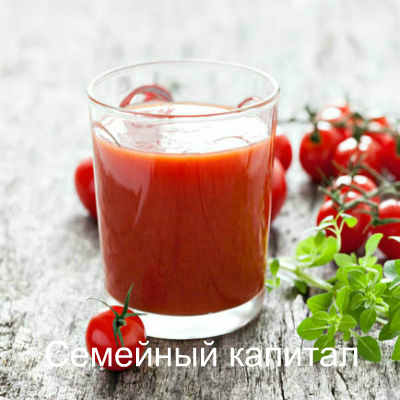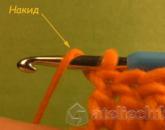Let's figure out which drinks you can and cannot drink during diarrhea. What are the benefits of tomato juice?
Tomato juice is a drink that contains many beneficial substances necessary for our body. In addition, it has an excellent taste and is very refreshing and quenches thirst.
This juice is one of the most favorite juices for most people living in different parts of the world. Freshly squeezed tomato juice, prepared at home, is very beneficial for our body and health.
Diarrhea can be caused by a number of factors, including overeating, a virus, eating bad food, or stress. If symptoms persist, contact your doctor. But there are some home remedies for diarrhea that can be used for minor cases.
Remedies and recommendations against different types of diarrhea
If we believe that the cause is due to poor eating habits, homeopathic arsenic can be taken which helps control the evacuation of the abdomen without interfering with the elimination of toxins. Wild oregano oil is antibacterial, antiparasitic and antiviral, very useful if diarrhea is of viral origin. Ginger tea can stop cramps and pain. It also helps prevent dehydration. Take an infusion with a small amount of honey. You can also take it in capsules. Important: Allow diarrhea to run its course for 6-12 hours to cleanse the body of toxins. Stay hydrated and lose important nutrients. Drink plenty of fluids, especially drinks that replenish electrolytes such as sports drinks and fresh juices. Avoid drinks with carbonation or caffeine. Drinks like ginger ale or carrot juice, are good for making stools less watery. Avoid apple juice, orange juice, or other fruits that commonly contribute to diarrhea.
Products indicated for diarrhea
Cottage cheese and other soft cheeses, oatmeal, toasted bread with olive oil, boiled potatoes and carrots with skin. In general, fruits should be avoided, with the exception of bananas, blueberries and apples, which have all the astringent properties. Ripe bananas are especially good because they are easy to digest and contain potassium, magnesium and pectin, water-soluble fibers that can bind to bile acids and cholesterol in the intestines.Foods to avoid when you have diarrhea
Fruits and raw vegetables Sweets Alcohol Cabbage or cabbage High fiber foods In general, any other type of food that can cause fermentation and flatulence. After diarrhea, restore intestinal flora.- Charcoal tablets also help remove toxins from the body by absorbing them.
- Drinking blackberry tea is good for mild diarrhea.
- Cayenne capsules are also considered a natural remedy against diarrhea.
- Rice and the water in which it is cooked.
Firstly, this juice is an excellent source of lycopene, which is an antioxidant and serves as a preventive measure for many diseases, including cancer.
Secondly, the vitamins and minerals that tomatoes are rich in are completely preserved in the prepared juice. Read on for more benefits of tomato juice.
Useful properties and composition of tomato juice
Tomatoes are a very popular and frequently consumed vegetable at any time of the year. They are loved for their taste, versatility and, of course, for the great benefits they bring to our health. They are eaten in fresh, stewed, boiled, make sauces and ketchups. Tomato soup is one of the most popular summer cold soups. Tomato juice retains all the beneficial substances and qualities of the tomato.
By taking yogurt, acidophilus tablets or a good probiotic, we will restore our intestinal flora. We hope these tips help you. Any comments you can make below and you can also share this post on your social media.
An apple a day, which contains the vitamins and minerals needed for good health, may help keep the doctor at bay, especially if you replace the apples with less healthy snacks like sweets or potatoes. But even overeating something good can cause intestinal discomfort, including diarrhea. Apple juice, which has a much more concentrated source of sugar than the apple itself, is more likely to cause diarrhea than raw fruits, especially in children. Raw apple, on the other hand, can help treat diarrhea and constipation due to its high protein content.
Freshly squeezed tomato juice contains B vitamins: B1, B2, B3, B5, B6, of which vitamin B6 or pyridoxine is of particular value for the body. In no large quantities There is even vitamin B12, which is very rarely found in plant foods. Group vitamins are very important for the nervous system and energy production.
The juice also contains vitamins C, K, A, E. Vitamin A is very important vitamin for bones and teeth and especially for growing children. Vitamin K is involved in regulating blood clotting. And 100 grams of juice contains almost 30 percent of vitamin C. daily norm this vitamin for adults.
Pectin, one of the main components in apples, is a soluble fiber. Consuming more soluble fiber may cure more than cause diarrhea. Soluble fiber forms a gelatinous mass in the intestines when eaten. This mass provides more and slows the transit time of fecal matter through the intestines, which helps reduce diarrhea.
Raw apple vs apple juice
The energy source of apples is carbohydrates, in particular simple sugars fructose and sorbitol. Although most people can eat fructose without difficulty, others develop diarrhea when they consume sugar. Apple juice, which contains the same amount of sugar and fiber from a raw apple, is more likely to cause or worsen existing diarrhea, especially in children. It is much easier to drink too much juice than to eat too many apples. To get the nutrients you need without increasing your risk of diarrhea, eat whole fruits instead of drinking juices.
In addition to vitamins, tomato juice contains a number of important micro and macroelements, among which, first of all, it is necessary to highlight calcium, potassium, iron, copper, chlorine, phosphorus, and manganese.
Drinking tomato juice can serve as a prevention not only of cancer, but also of the heart and blood vessels, eczema, glaucoma and a number of other modern diseases.
Apples may help treat diarrhea and constipation in some people, but may cause diarrhea in others. The best way Finding out whether the sugars in apples or apple juice is the cause of your diarrhea symptoms is to reduce your intake and evaluate your response. Choose raw apples over apple juice as much as possible to reap the benefits of the fiber.
It's been a long time since we left the series, but none of them have become interesting enough to talk about. Today's failure is related to food and comes in several different forms, although they all have something in common. Basically, you hear that there is no good milk for milk and then fruit juice or alternatively juice and then milk or milk and then fruit or even the extreme version, "after milk, nothing comes out" which even discourages drinking water after milk.
In addition to vitamins and minerals, tomato juice also contains other important substances: phytonutrients, antioxidants, among which lycopene occupies a special place.
People who regularly smoke should definitely drink tomato juice every day, which will reduce the harm that nicotine brings to the lungs and the body in general. The juice contains coumaric and chlorogenic acids, which help neutralize the damage caused by carcinogens from tobacco smoke.
Let's reason together and release this absurd myth because, like many others, it contains a thread of false reasoning that can easily be undone with a little caution. If you drink milk and, for example, orange juice, the milk is washed away with acid and can sit poorly and cause diarrhea, vomiting, poor digestion or just discomfort. However, this reasoning has huge holes, so many of them cannot describe them all, but with two it is enough.
Firstly, it is true that when adding any acid to milk, it is “cut off”, i.e. protein coagulation occurs. Just add a little vinegar or lemon juice to a glass of milk to observe the effect. Therefore, when drinking milk and orange juice, the milk is actually being “cut,” as proponents of this idea claim. The terrible horror that forms in the glass, by the way, is undoubtedly the source of this Error: “How can you not feel sick enough to drink something like that?”, we may think.
100 grams of tomato juice contains about 3 percent protein, the same amount of fiber and carbohydrates. It contains no fat and cholesterol. The calorie content of the juice is very small and amounts to only 34 calories in a 200 gram glass. 
Benefits of tomato juice
Tomato juice has a beneficial effect on the entire body and improves the functioning of all organs. Drinking tomato juice helps:
However, what those who defend this idea don't usually say is that milk will always rip in your stomach, whether you drink what you drink before or after it. The reason is that orange juice is a real joke, as for acid, compared to what milk can be found upon entering the stomach: during digestion and as a result of the segregation of hydrochloric acid, the acidity of the stomach is much greater than orange juice or any other fruit that you want to eat.
In other words, if you are concerned about cutting out milk, you should never drink milk because that is the first thing that will happen when it gets into your stomach. Let's go with the good news that if you understood the first reasoning, it should be obvious or everyone will have terrible diarrhea when they drink milk at any time: just because the milk is cut out doesn't mean he's not feeling well.
Improving heart function;
Reducing cholesterol levels;
Improving the functioning of the gastrointestinal tract;
Reducing joint pain;
Reducing high blood pressure;
Reduced blood sugar.
The antioxidants contained in the juice are of great benefit. Free radicals, according to doctors and scientists, are the cause of many difficult-to-treat diseases. Drinking a glass of tomato juice can significantly reduce them. negative influence on the body.
Why? Because it's sour? We all take acids all the time and don't get diarrhea when drinking orange juice. Why coagulated proteins? We all take protein from milk that is constantly coagulated and don't vomit on it. Moreover, we constantly consume "milk cut".
But then, why did this idea arise that cut milk is bad? Also, if you leave a glass of milk on the counter and wait a few days, it ends up "cut" at the end, meaning sour, without having to add acid. There are many bacteria that quickly and badly varnish the milk and produce it as acidic waste. This fermentation returns to sour milk and, as a consequence, protein coagulation and “cutting” occur. This is often accompanied by a bad odor due to this fermentation.
The fat-soluble antioxidant lycopene can prevent many types of cancer, including breast, colon, and pancreatic cancer.
In addition, drinking a glass of juice can give you an energy boost no less than a cup of strong coffee.
Tomato juice helps cleanse the body of waste and toxins that accumulate in the body when consuming refined foods. Sulfur and chlorine contained in the juice improves the functioning of the kidneys and liver, which in turn helps cleanse the body.
In this case, of course, you didn't add the acid, but the bacteria themselves. Therefore, if the milk turns sour, it has been spoiled. But, of course, there is confusion between the two concepts: you can turn acidic milk without using a single bacterium. Also, there is nothing wrong with drinking milk that has been fermented, acidified, and "cut" by bacteria, depending on what kind of bacteria they are! Yogurt does just that. Bacteria ferment lactose from milk and produce an acid, lactic acid, which gives the sour character to this delicious dairy product.
Rich in fiber, tomato juice reduces the level of bad cholesterol in the body.
Rich in vitamin B6, this juice is considered one of the best drinks to prevent heart disease. People suffering from heart and blood vessel diseases are strongly recommended to drink tomato juice.
The presence of potassium helps remove excess fluid from the body, which is beneficial for people with high blood pressure.
So when you eat yogurt, you're basically eating cubes and acidic milk, and you usually add sugar to counteract that slight sour taste. "Oh, you might think," but it's not the same as taking yogurt to get a glass of milk, pouring a spoonful of vinegar or lemon juice and drinking that horror.
But you don't have to look far to find the same thing: Many European cheeses use acids to cut out the milk. If one day you want to make your own ricotta, that delicious Italian cheese, one of the first steps you'll need to follow is adding white vinegar or lemon juice to the milk. To be a lump horror of chopped milk, it's delicious, isn't it?
Tomato juice contains substances that increase the level of the happiness hormone - serotonin. The presence of manganese and phosphorus, B vitamins, has a positive effect on the functioning of the nervous system, which helps reduce stress, depression and general fatigue of the body.
The mild diuretic properties of the juice have a positive effect on the functioning of the kidneys and bladder.
Oddly enough, although coagulated milk proteins and their acidic nature do not pose any digestive problems, the lactose in normal milk is a problem for those who are lactose intolerant. However, if these people drink milk that has been fermented by bacteria that have converted lactose into lactic acid, they can consume it without digestive problems. This requires irony, sometimes it is infinitely better to drink "cut" milk than normal milk!
So in the end, it's all good news: when it comes to milk and acids, take what you want and want without worrying about diarrhea or poor digestion. You can get the disease by eating foods that contain the virus, contact with surfaces or areas contaminated with the virus, or contact with someone who has the disease. It can't be treated with antibiotics as they don't usually work on viruses, so you have to do them.
Tomato juice helps reduce platelet levels, which in turn prevents the formation of blood clots and reduces the risk of heart attacks.
Drinking tomato juice will help reduce the number of pimples and blackheads on the face, slow down the secretion of sebum, tighten pores and significantly improve appearance skin. In addition, the juice has a rejuvenating effect on the skin, significantly improving its tone.
You can wipe your face with cubes of frozen tomato juice or make masks with it.
The vitamins and minerals contained in the juice also affect the condition of the hair. They become stronger, shiny, improve hair growth, reduce dandruff and relieve itching of the scalp. Do masks with tomato juice at least a couple of times a week and your hair will delight you with its beauty.
 Tomato juice for gout
Tomato juice for gout
Most people find milk and dairy products to be the healthiest for bones and joints. But tomato juice is even healthier in this regard.
First, tomato juice contains vitamin K, one of the most beneficial vitamins for bones. This vitamin activates osteocalcin, which is responsible for calcium content in bones.
Secondly, lycopene has powerful anti-inflammatory properties and can reduce pain associated with gout, arthritis and other diseases of the skeletal system.
Vitamin C, which is found in large quantities in fresh natural tomato juice, strengthens the immune system and helps the body resist pain associated with joint disease.
Tomato juice for pancreatitis
Pancreatitis is inflammation of the pancreas. With this disease, you need to strictly follow a diet to avoid exacerbation of the disease. During the remission stage, you can drink tomato juice, but only that which has been heat-treated. Fresh juice should not be consumed during this disease, as well as juice from unripe tomatoes.
During an exacerbation of the disease, tomato juice and tomatoes should be excluded from your diet.
Drinking tomato juice, studies have shown, can reduce the risk of developing pancreatic cancer, which is one of the most difficult types of cancer to treat.
Tomato juice for gastritis
Tomato juice in general is very beneficial for the entire functioning of the digestive tract. It helps prevent constipation. In this case, it is recommended to mix the juice with spinach. In some cases, tomato juice can help with diarrhea.
You can drink tomato juice even if you have stones in your gallbladder and kidneys. It acts as an antiseptic that can prevent all types of infections.
You should not drink juice only during exacerbation of gastritis and other diseases of the gastrointestinal tract.
Tomato juice for hangover
Many in such a situation resort to a proven remedy - cucumber pickle. But tomato juice is no worse and can cope with all the consequences of a hangover. It is recommended to drink tomato juice by mixing it with cucumber juice and adding a tablespoon of spinach juice. You can add a spoon vegetable oil. You should drink tomato juice before going to bed after drinking heavily.
Tomato juice for diabetes
As many studies have shown, tomato juice is beneficial for patients diabetes mellitus 2 types. It normalizes biochemical balance and can reduce blood sugar levels.
Drinking one and a half glasses of juice a day for a month can reduce inflammation in the body and reduce weight, which often affects people with diabetes.
Tomato juice for weight loss
Tomato juice, due to its low calorie content, is useful for weight loss. In addition, it contains many vital nutrients that people who are losing weight often lack.
The water contained in the juice helps avoid dehydration and helps remove waste and toxins from the body.
Tomato juice reduces appetite, which in turn reduces the desire to snack between meals.
The only thing you need to remember is that it must be natural tomato juice, without salt, sugar or preservatives. It's better to cook it yourself.
 Tomato juice for women
Tomato juice for women
Tomato juice is a valuable source of nutrients and helps reduce the risk of breast and cervical cancer. The juice is also useful during pregnancy. It contains folic acid, which women need during this period. Due to the low calorie content, there is no risk of quickly gaining weight, which can be dangerous for the baby and the mother.
During pregnancy, many women suffer from constipation. Drinking a glass of juice in the morning on an empty stomach will help cope with this problem, as it stimulates the digestive tract.
Drinking tomato juice during menopause will help reduce many symptoms: irritability, insomnia, anxiety, mood swings, hot flashes and other symptoms. Studies have shown that just 200 ml of juice per day significantly reduces the symptoms of menopause.
Calcium can serve as a good prevention of osteoporosis, which women often suffer from during this period.
In nursing women, tomato juice increases production breast milk. The only contraindication to drinking juice during this period is an allergic reaction to the juice in a child.
It is better to drink tomato juice freshly prepared without adding salt. Salt reduces the value and usefulness of the juice. Instead, you can add parsley, basil, celery, and garlic.
How to drink tomato juice
Natural freshly squeezed juice has the most beneficial properties. Therefore, to get maximum benefit from this drink, prepare it immediately before drinking.
Tomato juice can be mixed with other juices: carrot, pumpkin, cabbage, apple. It goes well with celery juice, fresh herbs, onions, garlic, and cucumber juice.
Although you can drink tomato juice in unlimited quantities without any particular complications, it is still better not to drink more than 3 glasses a day. After all, it contains vitamin K, which is responsible for blood clotting.
How to make tomato juice
Before preparing the juice, wash the tomatoes well with cool water and dry.
Cut in half or quarters and remove seeds. Although this is a controversial issue. The seeds also contain beneficial compounds.
When preparing juice, do not use aluminum utensils, which can impart an unpleasant taste to the juice. And it's not very good for health.
It is better to extract juice using a juicer.
When storing for the winter, you can add salt and sugar to the squeezed juice as preservatives and boil for 10 minutes.
Pour hot into clean and sterilized glass jars and roll up the lids.
Cool by turning the jars upside down.
Store in a cool place.
Contraindications to drinking tomato juice
Some people may have an individual intolerance to tomatoes, which manifests itself as an allergic reaction.
But most often, tomato juice has no contraindications for consumption. The exception is exacerbation of diseases of the gastrointestinal tract, liver, kidneys, and gall bladder.
You should not combine drinking tomato juice with foods such as eggs, fish, meat, potatoes, and dairy products. This can lead to the formation of kidney stones and gallstones.
In case of poisoning, which is accompanied by vomiting, it is better to refrain from drinking tomato juice.
In general, tomato juice is a very tasty and healthy drink for both adults and children.
ABOUT beneficial properties How to drink tomato juice and how much you can drink it in this video
Find out how to choose a quality tomato from this video
Receive the latest articles to your email
As soon as they call tomato juice! The most tender thing is the blood of tomatoes. Fans of horror stories also recall the dark past of tomatoes, because they were once considered poisonous to humans. Even today, when tomatoes have become an integral part of our diet, filling garden plots, supermarket shelves and markets, many people eat tomatoes only for the taste, not at all considering this vegetable healthy. The same opinion applies to tomato juice, although this is perhaps one of the most popular vegetable drinks. Let's find out the truth, is drinking tomato juice healthy or harmful? Who can drink it and in what quantities, and who should abstain?
In order for an opinion to be reasoned, first of all you need to look at chemical composition And nutritional value tomato juice - this will immediately clarify a lot.
Calorie content and composition of tomato juice
100 grams of tomato juice contains only 18 calories, and this indicates the high dietary content of the product. Carbohydrate content - 3 grams, protein - 1 gram, fat - 0.2 grams. The same amount of juice contains 0.8 grams of dietary fiber, 0.6 grams of organic acids, and 2.9 grams of mono and disaccharides.
The variety of vitamins, macro and microelements contained in tomato juice is simply surprising. And this drink can still raise doubts about its benefits? Yes, it’s just a vitamin cocktail, nothing else! B vitamins are of great value in it; people often experience a deficiency of these substances, since their digestibility leaves much to be desired, and few products can boast a high content of vitamins of this group. Tomato juice also contains vitamin C in large quantities, which promotes the absorption of many other substances.
Vitamins in tomato juice
— vitamin C — 10.1 mg
— vitamin H — 1.22 mg
— vitamin PP — 0.31 mg
— beta-carotene — 0.33 mg
— vitamin B5 — 0.321 mg
— vitamin E — 0.41 mg
— vitamin B6 — 0.18 mg
— vitamin B1 — 0.02 mg
— vitamin B2 — 0.04 mg
— vitamin A — 50 mcg
— vitamin B9 — 11 mcg
Macronutrients
— calcium — 6.92 mg
— magnesium — 12.38 mg
— potassium — 239.67 mg
— phosphorus — 33.11 mg
— chlorine — 56.8 mg
– sulfur – 12.01 mg
Microelements
— iron — 0.69 mg
— zinc — 0.21 mg
— manganese — 0.15 mg
— rubidium — 154.7 mcg
— boron — 114.98 mcg
- copper - 111.01 mcg
— fluorine — 20.5 mcg
- nickel - 13.34 mcg
— molybdenum — 7.1 mcg
— cobalt — 5.79 mcg
- chromium - 5.21 mcg
— iodine — 2.2 mcg
— selenium — 0.35 mcg
What are the benefits of tomato juice?
In addition, tomato juice contains organic acids such as malic, citric and tartaric. They are beneficial for the human body because they maintain tissue tone and fight signs of aging and fading. These acids also have anti-inflammatory properties.
Another substance from tomato juice, lycopene, is a carotenoid pigment and a powerful antioxidant. Antioxidants help us maintain youth, remove free radicals from the body, and prevent cancer. I wonder what heat treatment for lycopene it is not terrible; on the contrary, after it it becomes more powerful. In many traditional medicine recipes and healthy eating You may come across advice to fry or boil a tomato with a small amount of oil to make it healthier. There is a rational grain in this and thermally processed tomato juice definitely has its benefits.
In some folk cuisines, tomato juice is used exactly in this form - with olive or linseed oil, greens, nuts, other fruits or vegetables, and nutritionists approve of such nutrition. For example, rich in tomatoes and tomato juice, it is protected by UNESCO and is considered the healthiest in the world.
The complex of vitamins and microelements in tomato juice has a beneficial effect on the nervous system. This drink can be called an antidepressant due to the fact that it contains serotonin; tomato juice can really calm down and normalize the functioning of the nervous system.
If you regularly drink tomato juice, your anxiety will go away, your mood will improve and become more balanced. Blood circulation will be normalized, metabolism will be restored, hearing and vision will be sharpened, it will become easier to concentrate and engage in mental work. Antioxidants affect the condition of blood vessels, rid them of harmful cholesterol, this speeds up blood circulation and brings a surge of vigor. This is worth taking note of for people with cardiovascular diseases.
Tomato juice is good for the stomach, it helps dieters get rid of the feeling of hunger, relieves spasms, saturates the body with necessary substances, so those losing weight do not experience a loss of strength.
Pregnant women Tomato juice often helps in the morning to get rid of nausea. Doctors recommend putting a glass of juice on the bedside table and drinking it without getting out of bed. You can add a pinch of salt to the juice - this also dulls the manifestation of toxicosis. Tomato juice is also useful for children; it does not pose any danger to a growing young body.
But there are still those who should refrain from this drink, since in their case it can do harm rather than good.
Harm of tomato juice and contraindications for use
Tomato juice improves intestinal motility, so people should avoid it after surgery.
Also it is not shown:
- for stomach and duodenal ulcers;
- with pancreatitis;
- for cholelithiasis;
- cholecystitis;
- for gastritis;
- for any poisoning, diarrhea;
- for some kidney diseases;
- for gout;
- for individual intolerance and allergies;
- children under two years old;
— you can’t consume tomato juice with animal protein;
- Do not consume tomato juice with foods high in starch.
Popular
- Making charming baskets from newspaper tubes using a cardboard box
- Kiss tattoo for men. Kiss tattoo. The meaning of tattoos for men
- The safety of plastic toys
- Winter safety shoes: men's and women's, insulated
- Increased protein in urine: possible causes and treatment Quantitative methods of assessment
- We knit booties with knitting needles: elegant and casual patterns, patterns with descriptions and recommendations
- How is World Heart Day celebrated?
- Knitted children's pullover with cat applique
- You need to know this: how to get a ticket to kindergarten - step-by-step instructions for parents
- Birthday card for grandma from her grandson or granddaughter




